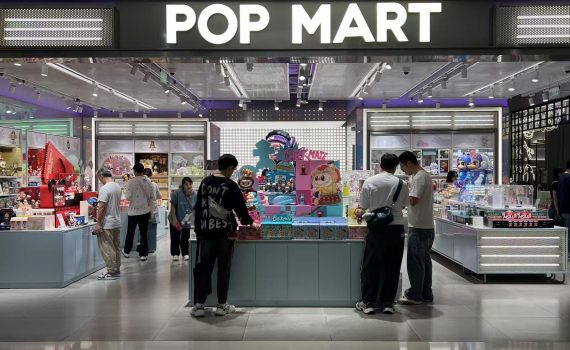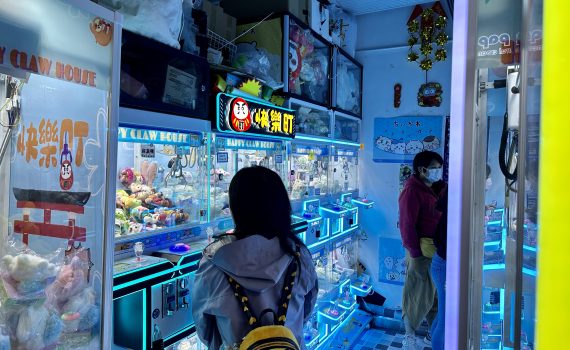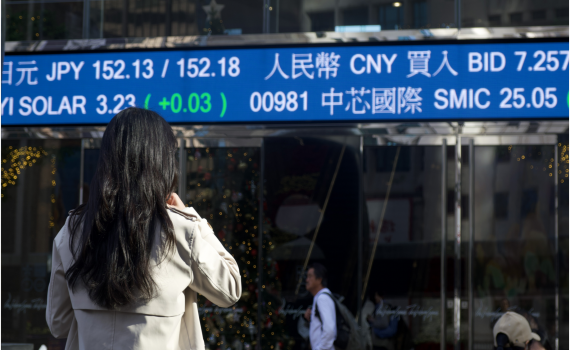The Young Reporter

Golden Horse Best Actress playing deaf girl brings attention to vulnerable group films
- 2025-03-04
- Business
- The Young Reporter
- By: ZHAO Runtong、XIA FanEdited by: XIA Fan
- 2025-03-04
Chung Suet-ying, winner of the Golden Horse Film Best Leading Actress, called for more attention to be allocated to locally independent films while thanking fans supporting the film The Way We Talk at the special screening of Hong Kong Baptist University Communication School, her alma mater. The movie explores the choice of hearing-impaired people between using cochlear implants(electronic devices to improve hearing) or simply using sign language. Sophie Fong, played by Chung Suet-ying, was such a girl getting confused between the two advocacies and later decided to follow inner voices for living her own life. As of March 3, the movie achieved a box office of HK$ 5.35 million, ranking the fourth among all movies that have been released locally within the month. Also, nearly 60% of the audience on the Internet Movie Database (IMDB) gave the movie a score above or at eight out of ten. As for awards winning, besides Chung locking in the "Best Leading Actress" at the Golden Horse Film Awards, the movie also secured the Audience Choice Award and the Hong Kong Film Critics Society Recommended Movies Award. "Some worried a movie about ‘deaf people’ will not be popular, but I have confidence in the Hong Kong audience, which was proved by the award we got," said Adam Wong Sau-ping, the director on his Facebook page after winning the "Audience Choice Award" at the Hong Kong Asian Film Festival. “It is a discussion of identity politics,”said the Hong Kong Film Critics Society. “Adam Wong Sau-ping three-dimensionally presents the intersecting situation of deaf people and hearing people, and the diverse faces of their life circle,” the society added. Despite the positive reception of Wong’s film, local productions face challenges in Hong Kong’s competitive market. Only three of the top ten box office movies released in 2025 …
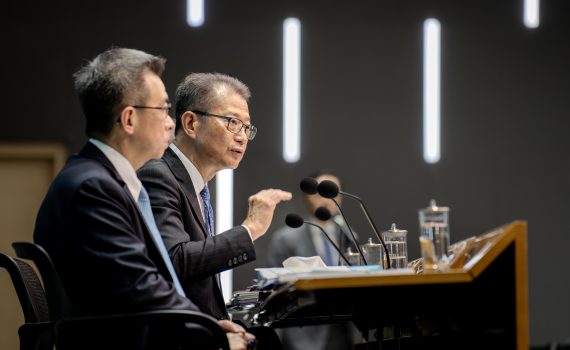
Budget 2025: Hong Kong to issue third tranche of tokenised bonds and boost digital bonds market
- 2025-02-26
- Business
- By: Haoming Zhou、WANG RuoshuiEdited by: BO Chuxuan
- 2025-02-26
Hong Kong will continue to encourage the issuance of digital bonds through the Digital Bond Grant Scheme and prepare the third tranche of tokenised bond issuance, said Paul Chan, the financial secretary, at his 2025 Budget Speech on Wednesday. The government will explore measures to enhance the wider adoption of bond tokenisation and tokenising traditional bonds, said Chan. “Any movement conducive to the promotion of digital bonds is a good thing,” said Simon Lee, a member of the Legislative Council of Hong Kong, “there has to be enough diversified products to activate the market, so that Hong Kong's position in the financial market can be consolidated.” HKMA has issued two batches of tokenised green bonds, HK$ 800 million in February of 2023 and around HK$ 6 billion in February of 2024, enabling tokenisation to move beyond the proof-of-concept stage to the practical application level. Tokenised bonds, issued and traded with blockchain technology, are a type of digital bond, which globally has reached an issuance value of US$3.9 billion (HK$ 30 billion) by the end of March 2023, according to the Hong Kong Monetary Authority. To encourage more institutions to participate in the issuance of digital bonds, the Digital Bond Grant Scheme (DBGS), a three-years grant scheme of up to HK$2.5 million to cover the eligible digital bond issuance costs, was announced in November last year, after first introduced on Oct. 16, 2024, in the 2024 Policy Address. The echo comes in quick succession as Singapore launched Global-Asia Digital Bond Grant Scheme (G-ADBGS), a five-year digital-bonds-supporting scheme, to promote the issuance of digital bonds in January 2025. “I would consider tokenised bonds as a very good way to invest,” said Chen Shiyi, a virtual asset investor from mainland China who works at Pleasanton Ventures Limited, …
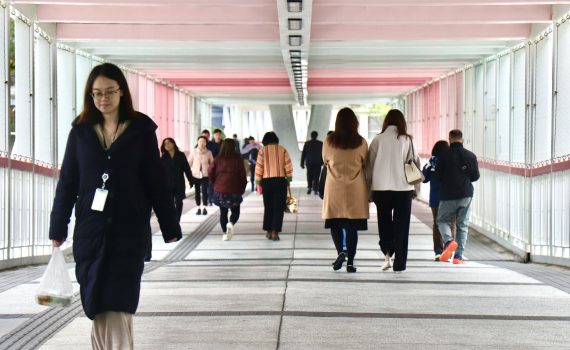
Hong Kong officials' pay freeze as government addresses fiscal deficit
- 2025-02-26
- Business
- By: ZHAO Runtong、Yichun FangEdited by: XIA Fan
- 2025-02-26
The Hong Kong government plans to freeze salaries of all executive, legislative, judicial and district council staff in fiscal year 2025-26, said Financial Secretary Paul Chan Mo-po in the budget speech today. “This(salary freeze) includes the chief executive and politically appointed officials; the non-official members of the executive council; members of the civil service; the president, all members, and secretariat of the Legislative Council; chief justice of the Court of Final Appeal, judges of the courts at all levels; and other members of the judiciary; and members of the District Councils,” said Chan. The Financial Secretary further announced that the civil service establishment will be cut by 2% each fiscal year from 2026-27 to 2027-28, a total of about 10,000 positions. "The government took the improvement of economic conditions and room for private market salary increase into consideration,” said Chan in the press conference, “freezing civil servants’ salaries is more appropriate than cutting them.” Reported as HK$87.2 billion for the fiscal year 2024-25, the expected consolidated budget deficit nearly doubles the government's initial forecast. On the other hand, Hong Kong hired approximately 173,000 civil servants to serve about 7 million population, while in comparison, Singapore employed about 86,000 workforces for around 5 million residents. “It (a pay freeze) is a sign of commitment to reduce expenditure,” said Linda Li Che-lan, Associate Head of Public and International Affairs at the City University of Hong Kong. “But we cannot rely on a pay freeze for civil servants to effectively cover the deficit.” Leung Chau-ting, the chairman of Hong Kong Federation of Civil Service Unions, worries that a pay freeze for public servants would cause a chain-reaction. “The decision can trigger large-scale wage freezes across industries following the authorities’ move, causing harm to the benefits for other non-government employees,” said Leung. The salary …

